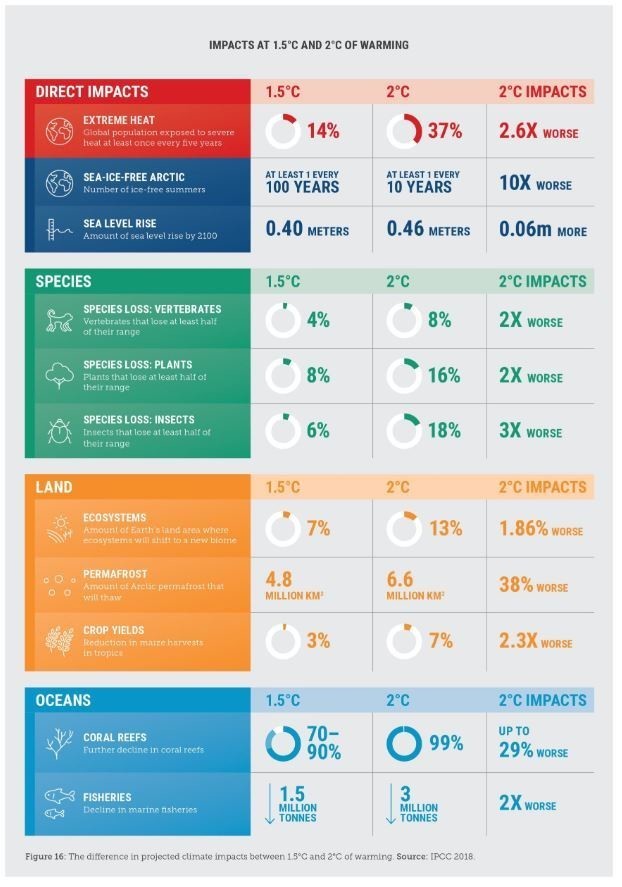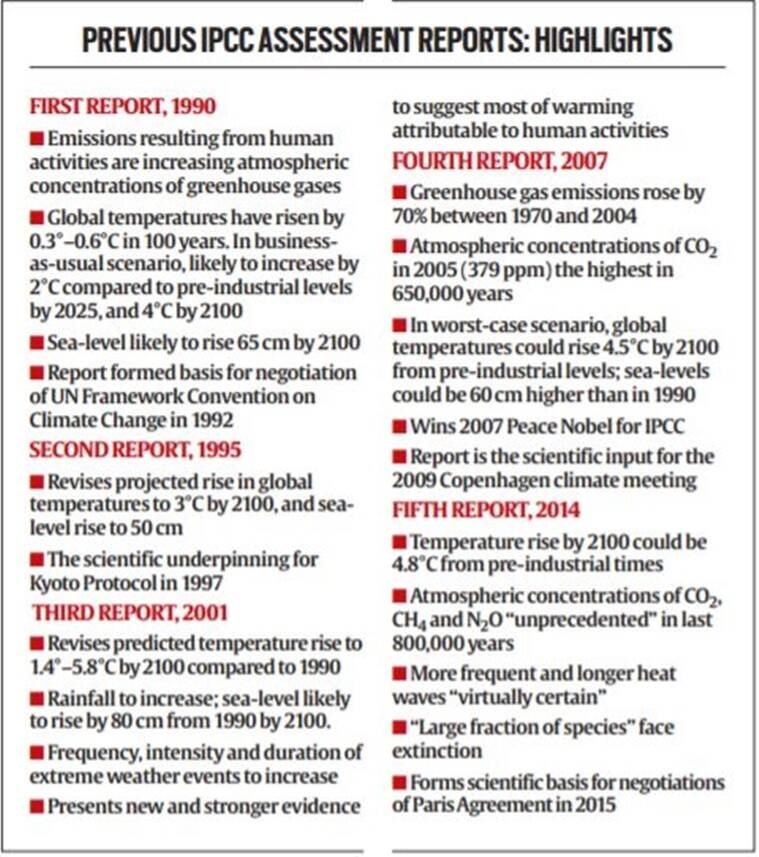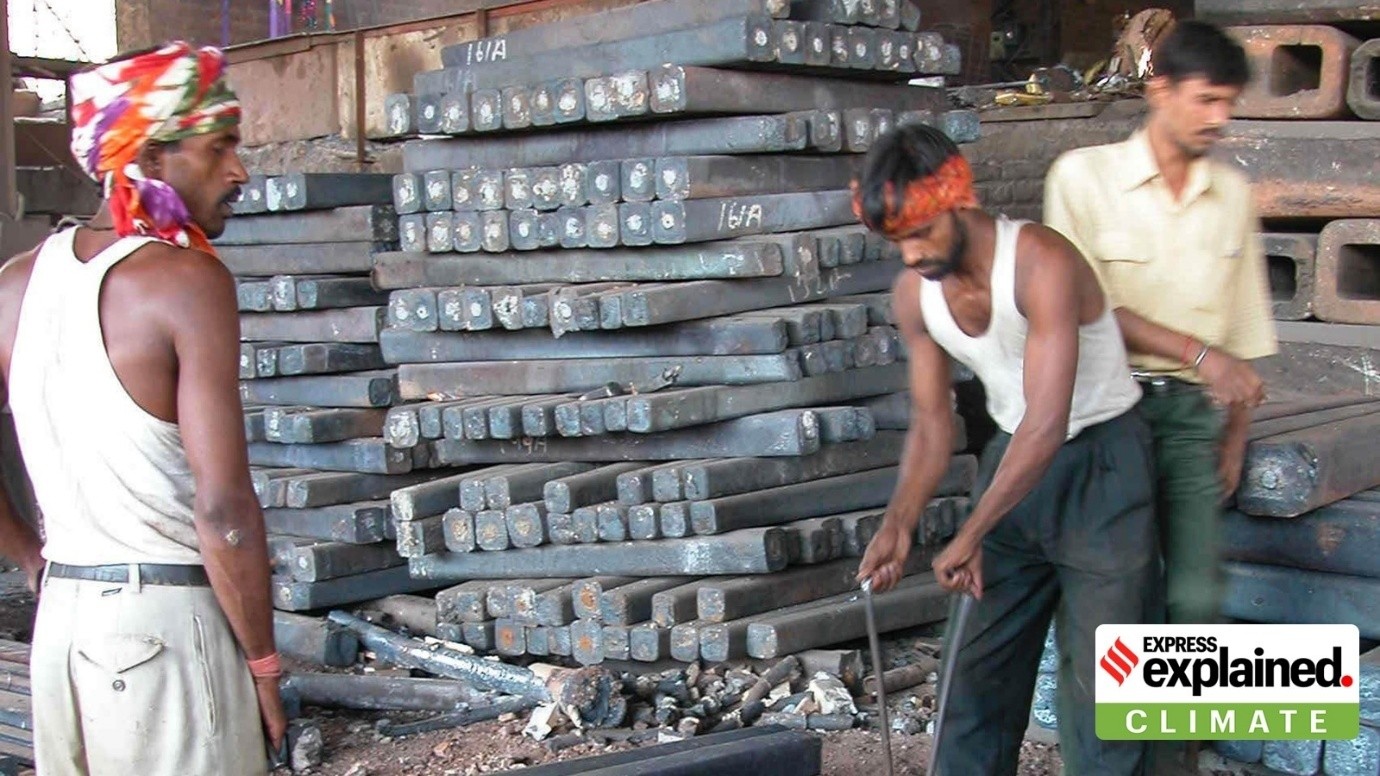Description

Disclaimer: Copyright infringement not intended.
Context: The Intergovernmental Panel on Climate Change (IPCC) has just launched its latest report on the climate crisis.
Details:
- Synthesis Report AR6: Climate Change 2023 Despite progress in climate mitigation policies and legislation since the previous report in 2014, "warming is likely to exceed 1.5 °C in the 21st century".
- The AR6 Synthesis Report: Climate Change 2023 concludes a five-year report on global temperature rise, greenhouse gas emissions and climate impacts.
- Since the Fifth Assessment Report cycle ended in 2014, more attention has been paid to the climate crisis and efforts to reduce its impact, with the annual Conference of the Parties (COP) driving this progress.
- This report is the latest report from the IPCC's 6th Assessment Cycle, published between 2018 and 2023, which includes global warming of 1.5°C, showing unprecedented damage from anthropogenic greenhouse gases.
- This brief report highlights the urgency of the climate crisis, its root causes, the current devastating effects - especially the undeniable scientific consensus in many climate-vulnerable regions, and the irreversible temporary damage even if warming exceeds 1.5°C.
- The goal is to provide policy with a high level, up-to-date understanding of climate change, its impact and future risks, and provide solutions and options to address the problem.
- The next cycle, the seventh assessment report, is not expected until at least 2027, which sets the stage for a seven-year milestone until 2030.
Key findings:
- The new report, written by 39 scientists, is divided into three sections arranged by timeline:
- Current status and trends, looking back through history to the present;
- Long-term climate projects and development prospects for 2100 and beyond;
- Future Responses to Climate Change looks at the current international policy timeline between now and 2030
- Humans' ability to survive on our planet depends on what we do in the next seven years. There is no time to lose in the goal of keeping the global average temperature below 1.5°C.
- Limiting warming to "below 2 ° C" by 2030, according to the goals of the Paris Agreement, will be difficult to achieve, but avoiding 1.5 ° C is still possible.
- The report also outlines the economic need for action to ensure that "the global economic benefits of limiting global warming to 2°C outweigh the costs of mitigation in most of the literature assessed."
- Human-caused climate change has affected climate and extreme weather in every region of the world - causing loss and damage to nature and people.
- Greenhouse gas emissions will soon increase global warming and reach 1.5°C between 2030 and 2035.
- Current warming is around 1.1°C, and current climate policies are expected to increase global warming by 3.2°C by 2100.
- The IPCC is "strongly convinced" that the risks and adverse effects of climate change will increase with global warming.
- To keep within the limit of 1.5 ° C, emissions must be reduced by at least 43% by 2030 and at least 60% by 2035 compared to 2019. Ten years are important to achieve this.

MUST READ:
https://www.iasgyan.in/daily-current-affairs/ipccs-sixth-assessment-report
https://iasgyan.in/blogs/all-about-intergovernmental-panel-on-climate-changeipcc
https://www.weforum.org/agenda/2023/03/the-ipcc-just-published-its-summary-of-5-years-of-reports-here-s-what-you-need-to-know/












